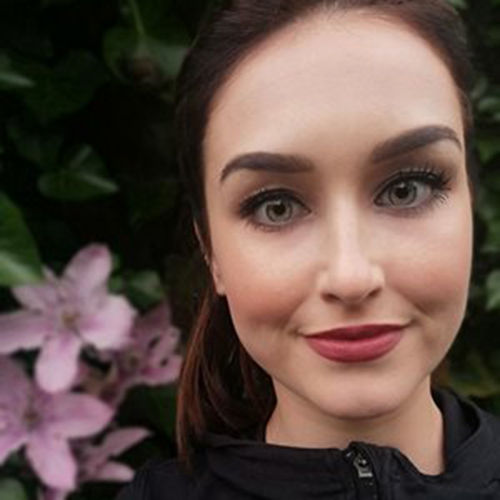3 Things Mindfulness Changed about Living with Asthma

Asthma shouldn’t push you to hide away from life. Cróna Tansey shares three ways mindfulness opened doors she thought were closed off forever.
I've recently discovered the power of mindfulness and I'm a convert! Nowadays, I try to do one "mindful" activity a day, such as guided meditation, a walk with my dog, or taking a dip in the sea.
Mindfulness and its benefits are hardly new, but I had reasons to be late to the party. As a chronic over-thinker, I assumed mindfulness meditation wouldn’t work for me. My head has always been crowded and preoccupied, and it’s too innate to be changeable. Or, at least, that’s what I’d been telling myself.
I'm a teacher at a primary school, and one of the training courses this year was "Developing Resilience and Practising Mindfulness with Children." (Yes, it's a bit of a mouthful). I went in with few expectations, but... Wow!
I never expected to change my mind about something so quickly.
Before the course started, we were asked to reflect on our own "thinking styles." Looking back, I realize how often I fell victim to the "unhelpful thinking styles" we explored later in the class. Examining how I think and why has helped me see things in a new light - including my asthma.
The course was based on the principles of Cognitive Behavioural Therapy. CBT techniques taught us how to challenge our negative thoughts and biases for a better outlook. The class also taught us that unhelpful thought processes can become habitual. But, like any habit, you can break negative cycles and form better practices in their place.
I've been practicing these techniques ever since. I can happily say that my resilience and quality of life have improved - particularly with my asthma management.
So, today, I'd like to share three ways asthma has influenced my past actions. And how, with mindfulness, changing my outlook has improved my present.
1. Asthma caused me to opt out of fun activities. Mindfulness got me back into them
There have been many occasions when asthma has caused me to shy away from fun things to do. I like running, but it can cause an asthma flare-up, especially in cold weather.
In the old days, I thought it would be safer to avoid running entirely. Of course, this isn't the case! I'm happy to say that I can now run confidently, as long as I keep up with my asthma control and treatment.
In short, asthma attacks frightened me so much that I'd miss out on things that may trigger one. It was life-changing to realize that this was not “just a fact of life" but a mental block I could move past. With my asthma under control, I can now enjoy many activities I'd previously written off.
2. Asthma made me anxious about future attacks. Mindfulness guides me through my flare-ups
Having an asthma attack is always a frightening experience for me. In the past, I've found it very difficult to remain calm. Panic always fuels the fire with my attacks, and I've started hyperventilating before.
Better asthma and emotional control mean I don't react the same way now as I did when first diagnosed. Focusing on my breath and reminding myself of how many attacks I've overcome can help.
Of course, I'm never blasé about an attack (I think that's impossible). But instead of panicking and wasting my energy, I know the trick is taking fast action. Likewise, clear and positive thinking reassures me that I'll make it through.
3. Asthma caused public embarrassment. Mindfulness made me see how kind people are
Unfortunately, I don't get to choose when and where my asthma attacks happen. Ideally, they'd happen far away from anyone else! I don't like being the center of attention, and any fuss from onlookers can make my symptoms worse.
After a flare-up, I tortured myself with thoughts like, "Who saw me?" and "Did I make a scene?" This may seem like the least of my worries, but the anxiety was real. I became terrified of having an attack in public - which worsened my chances of a flare!
Asthma is nothing to be embarrassed about. But I'm a private person who gets overwhelmed by crowds or attention. How could I put a positive spin on being so vulnerable in public?
And then I remembered the phrase, "The kindness of strangers." During an attack, many people feel concerned and want to help. They don’t want to make me feel bad – just better!
There is no right or wrong way to emotionally deal with an asthma attack, nor the aftermath. But I'm less likely to catastrophize if I put a more gentle and positive slant on matters.
The takeaway
Changing the narrative around my asthma attacks and symptoms makes a big difference in my life. I'm quicker to deal with flare-ups and less likely to shame-spiral afterward.
Reminding myself to focus on “the now” frees up space in my mind to enjoy the moment. I will always be vigilant about my asthma, but I'm trying to ensure my mindset remains positive, calm, and kind.
The individual(s) who have written and created the content in and whose images appear in this article have been paid by Teva Pharmaceuticals for their contributions. This content represents the opinions of the contributor and does not necessarily reflect those of Teva Pharmaceuticals. Similarly, Teva Pharmaceuticals does not review, control, influence or endorse any content related to the contributor's websites or social media networks. This content is intended for informational and educational purposes and should not be considered medical advice or recommendations. Consult a qualified medical professional for diagnosis and before beginning or changing any treatment regimen.
NPS-ALL-NP-00687 OCTOBER 2022














